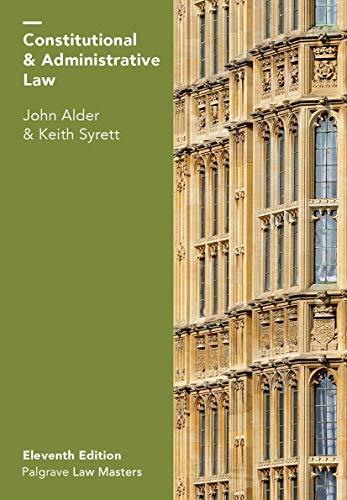Question
Last year, the State Board of Education in the State of Jefferson made some changes in the prescribed history curriculum in its public school. In
Last year, the State Board of Education in the State of Jefferson made some changes in the prescribed history curriculum in its public school. In the "New History Curriculum," all American history courses must contain coverage of Black history, Native American history, Chinese history, and Feminine history.
In Jefferson, 50% of the population is female; 53% is white; 18% is black; 7% is Native American; and 22% is Chinese.
About six months after the Board established the "New History Curriculum," a referendum was held on a proposed state law that prohibited preferential treatment based on race, gender, and ethnicity. The vote was 52% in favor of the law an 48% against the law. Groups favoring the new law have filed a lawsuit claiming that the Board's "New History Curriculum" violates the new state law because it mandates preferential treatment. On the other hand, groups favoring the "New History Curriculum" filed a lawsuit claiming that the new law violates the equal protection rights of the minority groups because it forbids equal coverage of minority group.
How would a "Natural Law" judge approach and resolve the legal dispute of the "New History Curriculum" violates the new state law because it mandates preferential treatment. Explain how the Christian doctrine of Justice contributes to the resolution of this particular legal dispute as well as disputes and conflicts in general.
Step by Step Solution
There are 3 Steps involved in it
Step: 1

Get Instant Access to Expert-Tailored Solutions
See step-by-step solutions with expert insights and AI powered tools for academic success
Step: 2

Step: 3

Ace Your Homework with AI
Get the answers you need in no time with our AI-driven, step-by-step assistance
Get Started


